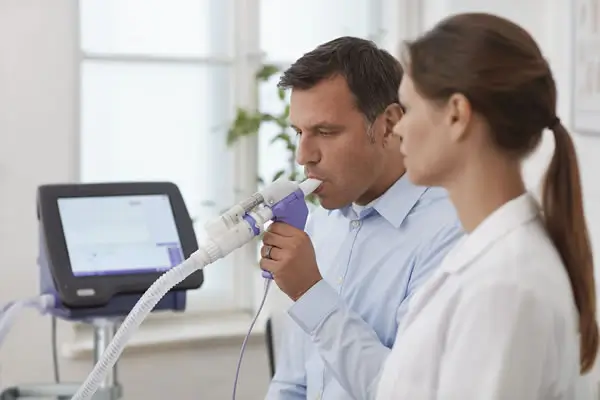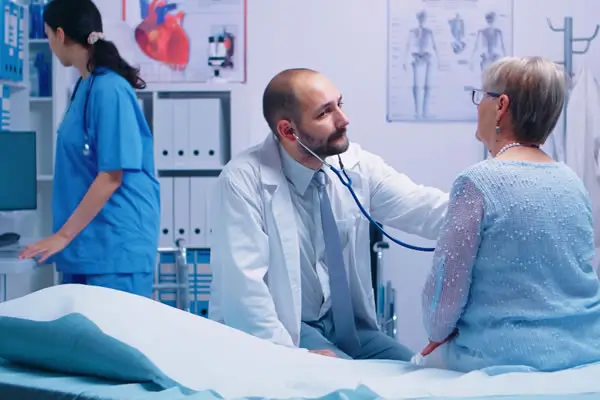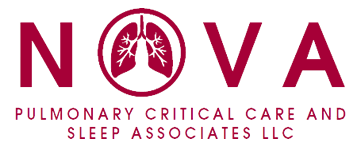What is Pulmonary Hypertension (PH)
Pulmonary hypertension (PH) is a condition characterized by high blood pressure in the arteries of the lungs. This increased pressure in the pulmonary arteries can strain the heart and lead to various complications over time.
There are different types and causes of pulmonary hypertension, but they generally fall into five main categories:
- Pulmonary arterial hypertension (PAH): This type of PH occurs when the small arteries in the lungs become narrowed or blocked, leading to increased pressure. PAH can be idiopathic (of unknown cause) or secondary to other conditions such as connective tissue diseases, congenital heart defects, or exposure to certain drugs or toxins.
- Pulmonary hypertension due to left heart disease: PH can develop as a result of heart conditions that affect the left side of the heart, such as left-sided heart failure or valvular heart disease. Increased pressure in the left side of the heart can lead to back pressure in the pulmonary veins and arteries, causing pulmonary hypertension.
- Pulmonary hypertension due to lung diseases and/or hypoxia: Lung diseases such as chronic obstructive pulmonary disease (COPD), interstitial lung disease, or sleep apnea can lead to low oxygen levels in the blood (hypoxemia) and increased pressure in the pulmonary arteries.
- Chronic thromboembolic pulmonary hypertension (CTEPH): In this type of PH, blood clots (thrombi) block or narrow the pulmonary arteries, leading to increased pressure in the pulmonary circulation. CTEPH can occur after acute pulmonary embolism or due to other factors that increase the risk of blood clots.
- Pulmonary hypertension with unclear or multifactorial mechanisms: Some cases of PH may have unclear causes or involve a combination of factors.
Symptoms of pulmonary hypertension can include shortness of breath, fatigue, chest pain, dizziness or fainting, swelling in the ankles or abdomen, and bluish lips or skin (cyanosis). Treatment depends on the underlying cause and may include medications to lower blood pressure in the lungs, oxygen therapy, and in some cases, surgery or lung transplantation. Early diagnosis and appropriate management are essential for improving outcomes and quality of life for individuals with pulmonary hypertension.




Office Locations
Conveniently located near you in Loudoun and Fairfax VA
NOVA Pulmonary – Dulles
24430 Stone Springs Boulevard
Suite 200
Dulles, VA 20166
NOVA Pulmonary – Lansdowne
19415 Deerfield Avenue
Suite 301
Landsdowne, VA 20176
Meet the team at NOVA Pulmonary Critical Care and Sleep Associates

Dr. Aditya N Dubey, M.D, F.C.C.P. – Founder
Specialty:
Pulmonary, Critical Care and Sleep Medicine
Board Certified by American Board of Internal Medicine in the Subspecialities of Pulmonary Medicine, Critical Care Medicine and Sleep Medicine. Learn more about Dr. Dubey

Dr. Petra Thomas, M.D.
Specialty:
Pulmonary Medicine
Board Certified by American Board of Internal Medicine in the Subspecialities of Pulmonary Medicine. Learn more about Dr. Thomas

Dr. Arman Murabia, M.D.
Specialty:
Pulmonary, Critical Care and Sleep Medicine
Board Certified by American Board of Internal Medicine in the Subspecialities of Pulmonary Medicine, Critical Care Medicine and Sleep Medicine. Learn more about Dr. Murabia

Rebekah Lee, AGNP-C
Nurse Practitioner. Learn more about Rebekah Lee

Christine Amorosi, AGNP-C
Nurse Practitioner. Learn more about Christine Amorosie
